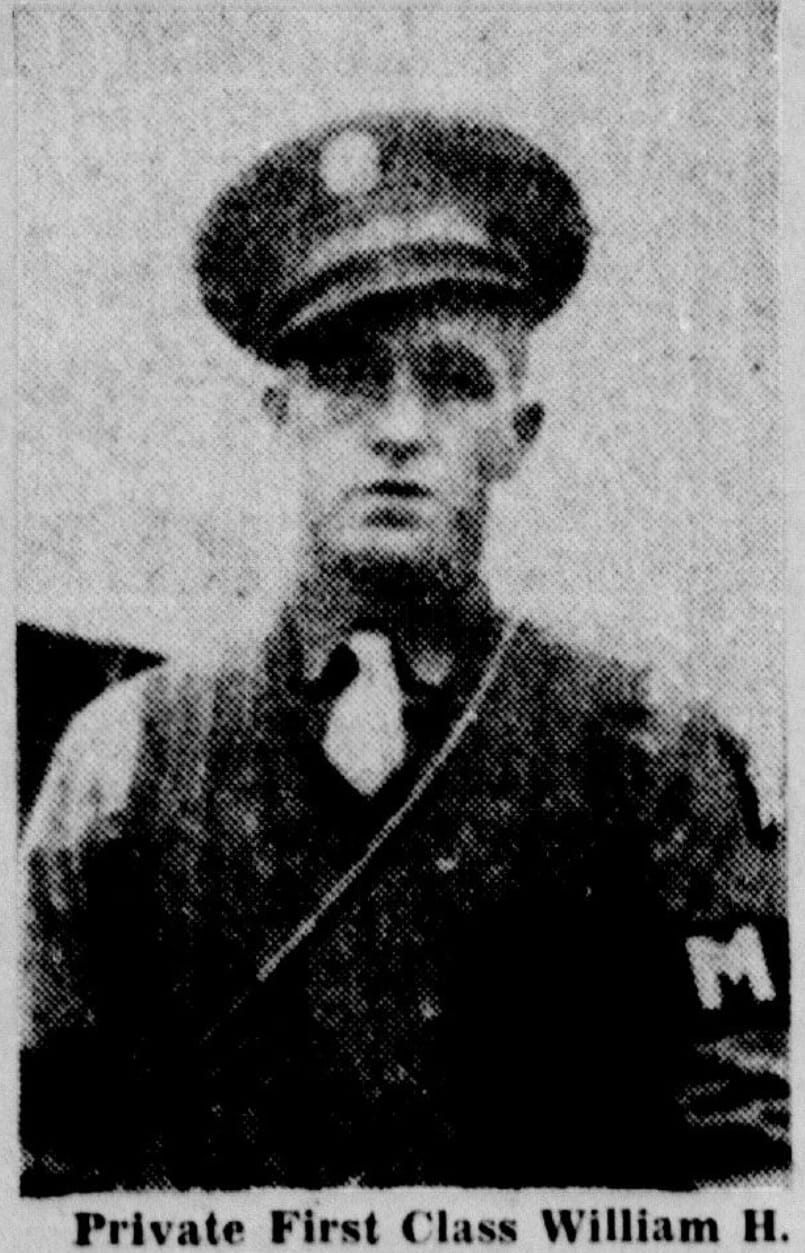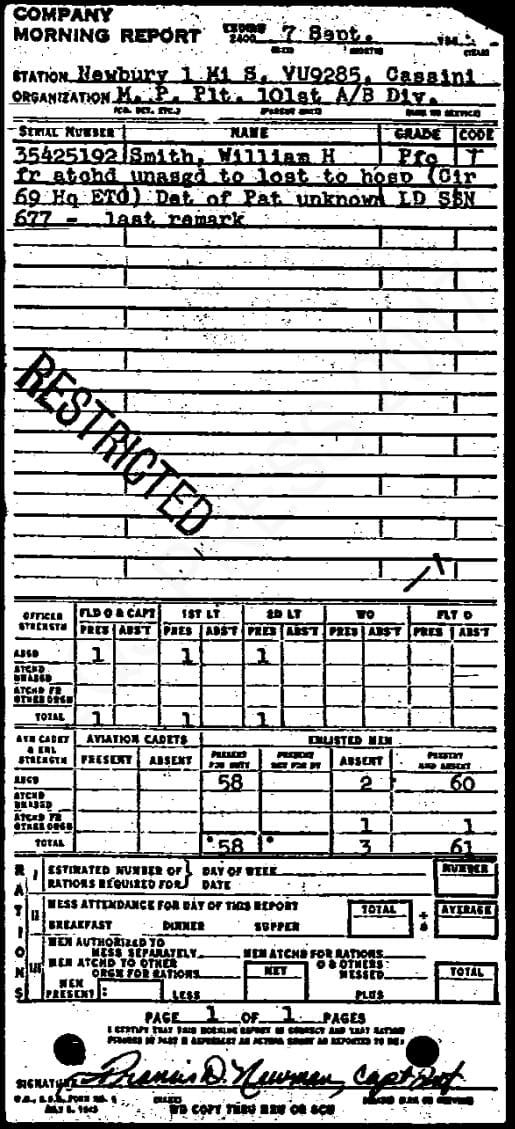PFC William Howard Smith
Today we honor and remember PFC William Howard Smith of the 101st Airborne Division.
Private First Class (PFC) William Howard Smith of the MP Platoon, 101st Airborne Division, was born in Handley, Kanawha County, West Virginia on March 9, 1916.
His parents were Henry Wilson and Melvina “Mallie” P. Smith. The available information about his siblings varies but listed are four brothers, Charlie, James, Chester, and Donald, and six sisters, Carrie, Mabel, Iva, Goldie, Sybil, and Thelma.
William Smith registered for the draft at Raleigh County, West Virginia, on October 25, 1940, and enlisted for the service in the same county, at Huntington, West Virginia, on March 31, 1942. At the time, he worked for Hunter Smith, a local coal mine company owner.
He joined the Military Police Platoon of the 101st Airborne and jumped into Normandy on June 6, 1944. The circumstances that caused his death on D-Day may have been unknown for a time.
According to a July 2nd article from The Sunday Register in Beckley, West Virginia, PFC Smith had been wounded in Normandy on June 6th. However, the Company Morning Report of the MP Platoon, dated on September 7th, stated he was lost to hospital. Yet his application for a headstone or marker declared he died on June 6, 1944.
If the War Department kept the family abreast of his unconfirmed status during these months, it must have been a nerve-racking period for them.
Another Screaming Eagle had soared to the ultimate height. 🦅
On his Find a Grave page, there's a song he apparently wrote called “Here Comes the Airborne,” meant to be sung at the tune of the “Beer Barrel Polka.”
The Beer Barrel Polka is a famous piece of music written by the Czech composer Jaromír Vejvoda, which is still being played by many artists, including Elton John.
During WWII, the tune was put to words by the soldiers on both sides of the lines. The Germans would sing a song called “Rosamunde, Rosamunda” using the Beer Barrel Polka, whereas the Allied troops had their own version, known as “Roll Out the Barrel.” That song was performed by all the greats of the time, such as Britain’s Vera Lynn and the U.S. Andrews Sisters.
PFC William Smith wrote his own version, and the text goes like this:
Here comes the airborne,
Sons of the red, white, and blue,
Here comes the airborne,
Gliders and paratroopers, too.
-.-
Three cheers for airborne - - -
Best in the land so they say.
We are proud to be the airborne
Of the U.S.A.
-.-
Listen Jappy, listen Jappy - - -
If you think that you’re so scrappy,
You won’t be so happy
When the airborne
Cleans the mappy.
-.-
To the airborne,
To the airborne,
To the men that’s in the airborne - - -
If you’re in the airborne
You’re in the Army’s best.
-.-
First we take our training which is tough,
Then we land and jump ‘em in the rough,
We’ll fight the foe far oe’r the sea
Till we have won our liberty.
But we’ll whip these Japs and Germans soon
Then back home beneath a summer moon
With our wives and sweethearts near
In the land we love so dear.
-.-
(Repeat Chorus)
Here comes the airborne,
Sons of the red, white, and blue,
Here comes the airborne,
Gliders and paratroopers, too.
-.-
Three cheers for airborne - - -
Best in the land so they say.
We are proud to be the airborne
Of the U.S.A.
PFC William Howard Smith rests eternally at the American Legion Cemetery in Beckley, Raleigh County, West Virginia.
Less than a year later after his untimely death, his family received another terrible message that his younger brother, PFC Charlie C. Smith, had died in the Philippines at the age of 26 on April 12, 1945, while fighting with the 517th Field Artillery Battalion. He is buried at the Manila American Cemetery and Memorial. Rest in peace, trooper.
Happy Birthday in Heaven, William.
Lest we forget. 🇺🇸






